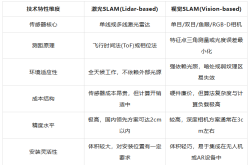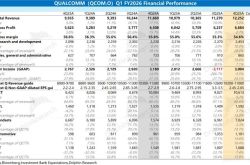Carlos Tavares' Resignation: An Inside Look
![]() 12/16 2024
12/16 2024
![]() 565
565
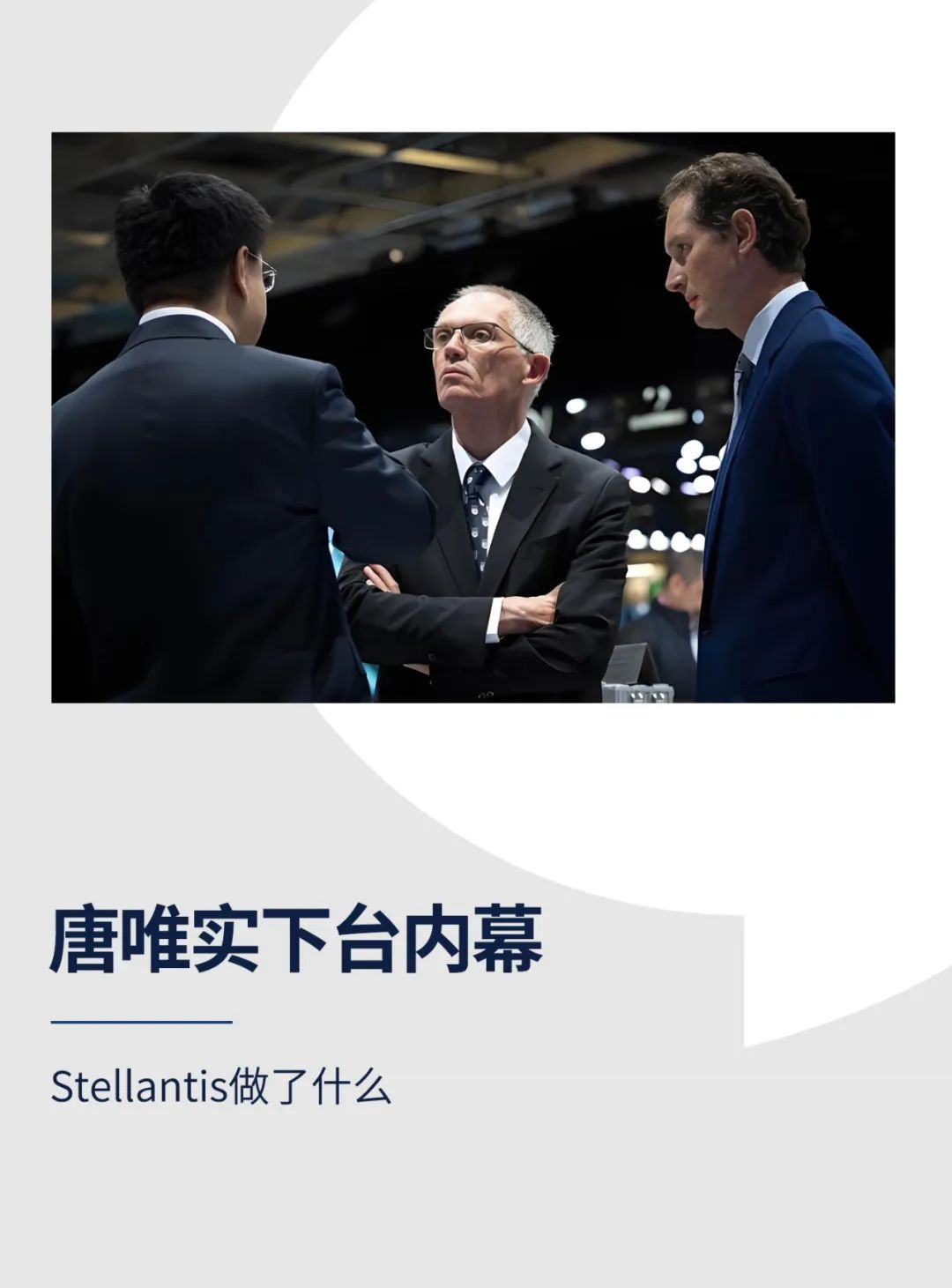
Compiled by | Yang Yuke
Edited by | Li Guozheng
Produced by | Bangning Studio (gbngzs)
At the peak of his tenure as CEO of Stellantis, Carlos Tavares frequently stressed that the automotive industry had entered a "Darwinian Era," in which only a select few manufacturers would survive the electric vehicle revolution.
Perhaps he never anticipated that he himself would one day face his own "natural selection." Under board pressure, Tavares hastily resigned as CEO of the French-Italian-American conglomerate on December 1 this year.
Known for his uncompromising and sometimes abrasive management style, Tavares portrayed himself as a leader with total control over the company.
Driven by an arrogant sense of omnipotence, he gradually alienated all stakeholders, including dealers, suppliers, importers, unions, and governments.
A source revealed that during the Paris Motor Show in October, Tavares publicly blamed the Stellantis US management for declining sales and increasing inventory in the US market. This angered some board members, but they did not abandon their support for him at that time.
Another source stated that in November, Tavares' reckless behavior led to a "completely untenable" relationship with the board.
According to this source, when board members began to ask more specific questions about Tavares' strategy, his response was, "You can't interfere with my work—it's none of your business."
Frustrated board members continued to pressure Tavares, disturbed by his relentless focus on cost-cutting, which led to supply disruptions and dealer dissatisfaction. These issues were overlooked in previous years when Stellantis' profit margins reached double digits.
Now, these and other concerns have permeated the entire company. Tavares' relationships with dealers, unions, suppliers, and governments have reached a point of irreconcilability, extending even to board members.
'You can't make enemies of everyone,' said the source.
The escalating conflict led the board to dismiss Tavares without immediately appointing a replacement. John Elkann, heir to the Agnelli family, chairman, and largest shareholder of Stellantis, seemingly reached his limit of patience. He could not even wait to find a successor.
As a result, Stellantis had to accelerate its search for a new CEO. The new leader faces a daunting task: stabilizing a global company with 14 brands, bloated US inventory, declining market share in the US and Europe, and increasing competition from Chinese electric vehicle manufacturers, alongside strict new European emission standards and disruptive electric vehicle and trade policies advocated by the elected US President Donald Trump.
The greater challenge lies not only in finding a new CEO but also in reforming the management structure. Tavares' departure raises questions about his over-centralized management style, lacking operational checks and balances.
Elkann's journey ahead is uncertain, but he has already taken action.
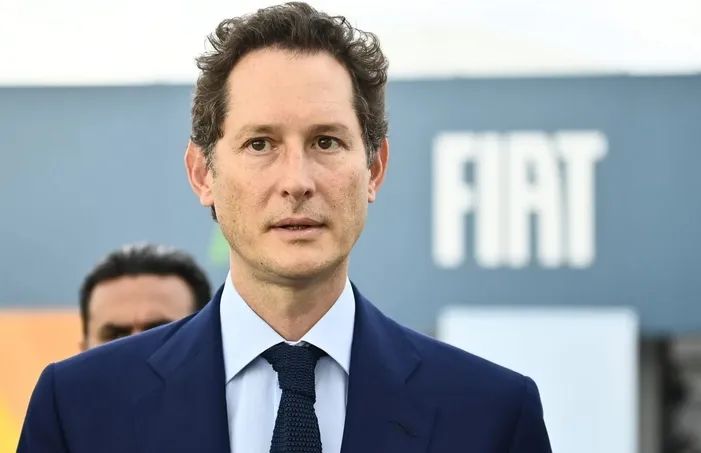

Three Major Actions in Europe
Immediately after Tavares' resignation earlier this month, Stellantis swiftly took action to bolster its struggling European business. First, it convened a company-wide meeting with European dealers. Second, it rejoined the European Automobile Manufacturers' Association (ACEA). Third, it appointed new heads for France and Germany.
On December 4, Jean-Philippe Imparato, the European CEO, met with four Stellantis European dealer associations in Amsterdam to set sales targets for 2025, aiming to increase the company's overall market share and electric vehicle sales while meeting stricter emission requirements.
This year, Stellantis has seen a significant decline in sales and market share in Europe. According to ACEA data, as of October, the group's share of the EU, UK, and EFTA markets was 15.7%, down from 17% in the same period in 2023.
Electric vehicle sales have been a challenge for European dealers. In early October, ACEA wrote to EU President Ursula von der Leyen, requesting more time for the automotive industry to meet the 2025 CO2 emission targets.
This letter directly conflicted with Tavares' stance. Tavares believed that Stellantis was performing well and could achieve its fleet emission targets. To meet these targets, Stellantis needed to significantly increase the proportion of electric vehicles in sales or reduce sales of more popular internal combustion engine vehicles.
However, electric vehicle sales are declining in Europe.
Dealers told von der Leyen that they were "facing significant challenges in meeting the stringent targets for electric vehicle sales imposed by manufacturers and upcoming EU regulations, while market conditions do not yet support such sales growth."
In a press release on December 9, Stellantis stated that the meeting held on the 4th at the company's headquarters in Amsterdam was "full of energy, frankness, and a constructive atmosphere, filled with confidence."
Another sign of reconciliation with Europe is Stellantis' announcement that it will rejoin ACEA, from which Tavares decided to withdraw in 2023.
ACEA has called on the EU to revisit the 2025 CO2 reduction targets, which could expose automakers that fail to meet them to billions of euros in fines.
Led by Luca de Meo, CEO of the Renault Group, ACEA is lobbying the EU to delay or modify the targets due to the sharp slowdown in demand for electric vehicles, a position opposed by Tavares.
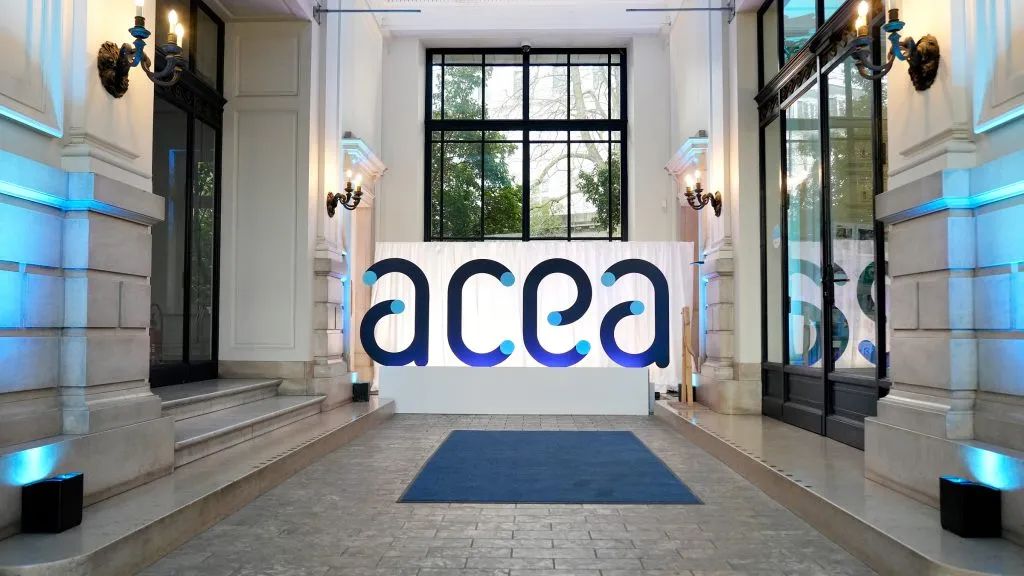
In a press release on December 10, Stellantis said, "We look forward to working with other ACEA members in unity and with a common approach to sustain the transition to electric vehicles and the sustainability and competitiveness of the automotive industry."
This week, Imparato appointed new heads for the two major markets of France and Germany. On December 9, Stellantis announced that Florian Huettl, CEO of Opel/Vauxhall, would oversee German operations. In France, Xavier Duchemin will take on this role.
Sales in France have declined significantly for the group, with November sales down 13% year-on-year, while rival Renault Group saw a 0.3% increase. Currently, Renault Group holds a 25.5% market share in France, while Stellantis has fallen to second place with a 24.2% share.
Imparato is also working to resolve issues in Italy, where Tavares clashed with unions and the government over production concerns. The key production facility for the Fiat 500 electric vehicle is located in Mirafiori, Turin, Italy, and has been largely idle this year due to the slowdown in electric vehicle demand.
Italian Industry Minister Adolfo Urso expressed hope that Stellantis would present a clear plan at a meeting he hosted in Rome on December 17 to revitalize stagnant production in Italy.
According to the International Organization of Motor Vehicle Manufacturers, Italy was the seventh-largest car producer in Europe last year. It hopes to surpass countries like France and Spain to become the second-largest producer after Germany.
Imparato confirmed the commitment not to close any factories in Italy and plans to launch a hybrid version of the Fiat 500 by the end of 2025 to boost sales of the model, which is currently only available in an all-electric version.
"I can tell you one thing, we're not giving up on Mirafiori, we're not giving up on Turin," Imparato said. "Stellantis is not giving up on Italy, absolutely not, and we'll show everyone that next week."
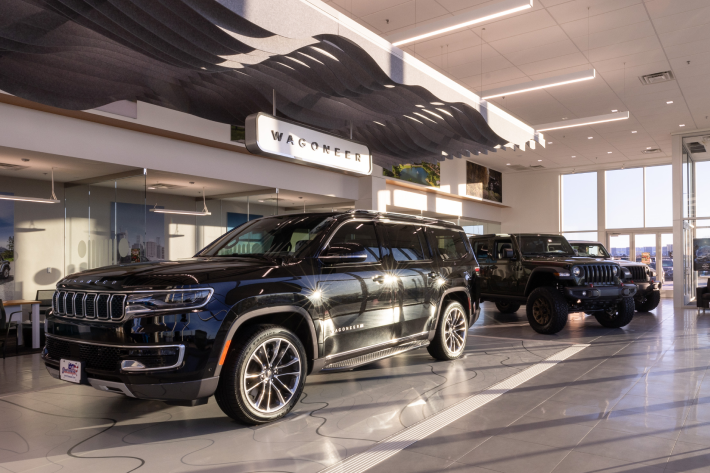

Urgent Need to Rebuild Trust with US Dealers
The era of Carlos Tavares has ended, but so have the fractured relationships between Stellantis and its dealers, employees, and suppliers. A key task for Stellantis following Tavares' departure is to rebuild trust with these stakeholders.
Under Tavares' leadership, a global cost-cutting campaign led to thousands of layoffs and eroded market share. Dealers felt overlooked by Tavares, complaining about overpriced vehicles and accusing him of pursuing record profits through reckless short-term decisions.
Tavares also expected suppliers to help absorb the costs of manufacturing electric vehicles, leading to several public conflicts.
Doug Ostermann, CFO of Stellantis, said that Tavares and the board had growing differences over the company's priorities and operational strategies during Tavares' remaining tenure (originally planned until early 2026). On December 4, Ostermann spoke at the Goldman Sachs Industrial and Automotive Conference, stating that short-term goals conflicted with the need for more enduring interests.
"The second area of conflict is how we interact with key stakeholders," Ostermann noted, referring to dealers, suppliers, unions, and governments in all regions where the company operates. "I clearly believe that trust needs to be rebuilt in these areas."
Following Tavares' departure, an interim executive committee led by John Elkann, chairman of Stellantis, will lead the company until a new CEO is appointed in the first half of 2025. Tavares had led the company since its formation through a merger in January 2021.
Stephanie Brinley, associate director of Global Mobility Intelligence at S&P Global, said, "The real purpose of this executive committee is to keep everything running smoothly. They have a good strategy. They will launch many products in North America and Europe this year."
Antonio Filosa, COO of Stellantis North America and CEO of the Jeep brand, has been nurturing relationships with dealers and meeting with retailers across the country. Following Tavares' departure, as a member of the executive committee, he now also oversees South American operations.
In an interview on November 21, Filosa said one way to win dealers' trust is to help them manage inventory. Over the past year, dealers have lost patience with Stellantis leadership due to bloated inventory, overpriced vehicles, declining market share, and inadequate incentives.
In response, Stellantis has taken more aggressive discount measures, reduced prices for some 2025 models, strengthened communication with the US Dealer Council, and made executive adjustments in October, including appointing Filosa as COO of North America.
Ostermann said the goal of reducing US inventory from 430,000 units in June to 330,000 by the end of the year has already been achieved. By mid-November, this number had reached 310,000.
Elkann said, "I think we've made some good progress in getting back on track. This should give us a lot of confidence to enter 2025 in a healthier way. I think we need to show the industry and investors our operational capabilities."
The day after Tavares' resignation, Elkann spent time on a video call with the four-person executive committee of the Dealer Council, which impressed Kevin Farrish, chairman of the Stellantis National Dealer Council. Other executives also joined the call, including Filosa and Matt Thompson, senior vice president of Stellantis US retail.
Farrish said the company has been rebuilding trust through increased transparency. Elkann's proactive communication has helped restore confidence among US dealers.
"I've never heard of a board chairman connecting with the National Dealer Council, dealer network chairs, and teams like he did," Farrish said with relief. "It was a show of respect. It was a great conversation. His instructions were very clear. I appreciate the plan he presented, which is a very reasonable and sound business plan that has Mr. Filosa overseeing not just North America but all of the Americas."
Farrish added that Stellantis has committed to submitting more proposals to the Dealer Council in the coming weeks and has formulated "a good interim plan."
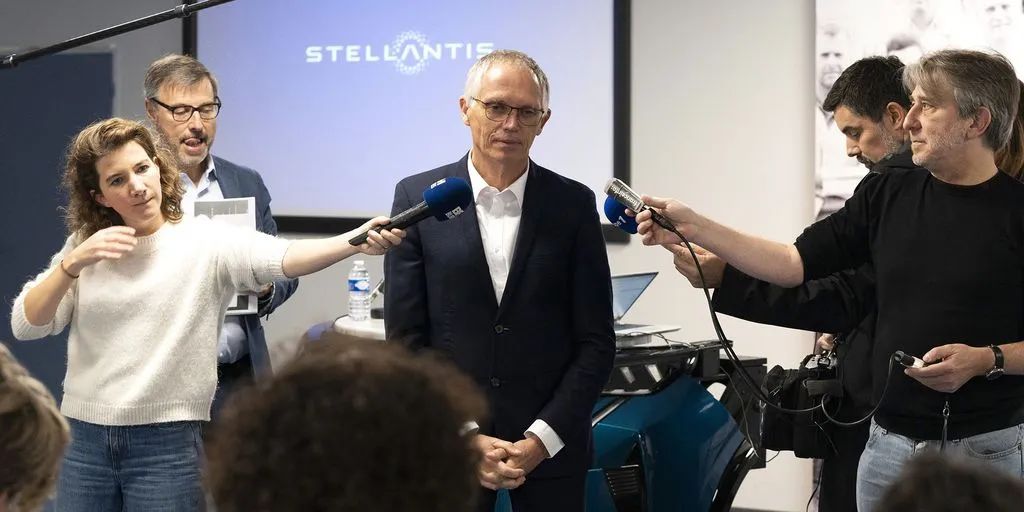

Carlos Tavares' Dismissal: A Failure Rooted in Arrogance
"Arrogance." This is the general evaluation of Carlos Tavares from executives who have worked with him. In June this year, Tavares also used this word to admit his mistakes, which led the automaker into trouble in the United States.
Several former or current Stellantis executives and some American employees said that Tavares' relentless focus on cost cutting, his aggressive goal of achieving double-digit profit margins in the "Dare Forward 2030" business plan, and his disdain for listening to American executives' views on the American market have led to Stellantis' current situation and ultimately to his resignation last week.
Several sources spoke to CNBC at different times in 2024, including several interviews last week, and agreed to share insights on condition of anonymity.
They said that Tavares' desperate pursuit of short-term cost reductions and profits has harmed the company's business, products, employees, and relationships with suppliers, unions, and dealers. Issues include a lack of support for new products and sales, squeezing supplier costs, and mismanagement of North American factories and products.
One source said, "If you think you know everything, you won't listen to others. The pressure to cut costs is like a gun pointed at your head."
Another source said that Tavares tended to shift blame to American executives while ignoring any of his own mistakes. The source said, "If you don't understand the market and customers, you can't make the right decisions."
Investors have also pointed fingers at Tavares. In 2024, before his resignation, Stellantis shares listed in the United States fell by 43%. In contrast, General Motors rose by 55% during this period, while Ford Motor fell by 9%.
These issues ultimately culminated in Tavares' resignation. On December 1, Stellantis announced that due to "disagreements" with the board, Tavares would step down immediately. However, the French financial newspaper Les Echos reported that Tavares had resigned following negotiations after the board's decision to dismiss him.
The 66-year-old Tavares was once perceived by the public as a strategic business leader who, despite ruffling some feathers during his management tenure, invariably delivered results. His track record includes significant transformations at the PSA Group and Opel's European operations.
As a talent admired by Carlos Ghosn, the former Nissan executive, Tavares was a staunch advocate for cost-cutting, mergers, and synergies—traits he shared with the late FCA CEO Sergio Marchionne. These qualities led many to believe he was one of the few executives capable of running such a transatlantic automaker, but they also contributed to his downfall.
Bernstein analyst Daniel Roeska wrote in an investor report on the departure of automotive company CEOs on December 6, "When things go well, CEOs in this industry are celebrated like Formula 1 racers, but one small mistake can lead to a stunning collapse."
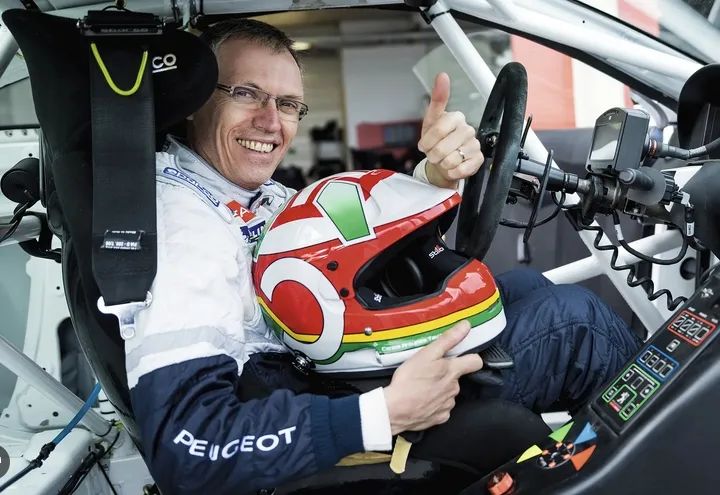

"Darwin is dead, and we need to survive." Tavares, an avid race car driver who enjoys spending a week each month on his farm in Portugal, took some wrong turns.
Some sources indicate that Tavares' arrogance towards some American hourly and salaried employees peaked this summer. Living in Europe and earning nearly $40 million in salary, stock, and other benefits last year, Tavares publicly announced he would spend a few days in North America during the summer vacation to address issues.
Such vacations are common in Europe but less so in the United States. According to sources, this angered some employees who did not have consecutive vacations.
Moreover, due to the time difference, American executives often held lengthy meetings in the middle of the night, followed by a full day's work in the United States. Combined with Tavares' smug superiority and disdain for various opinions, especially on product planning, this fueled dissatisfaction among American employees.
"Initially, Tavares suggested the company's center was somewhere in the Atlantic Ocean... but we all knew it was in France," said a former Stellantis executive.
Several sources revealed that executives repeatedly tried to reduce the company's focus on electric vehicles or at least launch gasoline-powered models before electric vehicles to maintain sales. However, Tavares dismissed these suggestions.
Sources indicated that Tavares' cost-cutting measures also included simplifying models like the Jeep Grand Cherokee while raising their prices above market standards. His micromanagement of budgets and decisions left American executives feeling constrained. One notable move was the elimination of the popular Hemi V-8 engine.
"Everyone wanted to keep the Hemi," said a source. "But his response was, 'You need to be more environmentally friendly,' and it was almost impossible for others to change this decision."
While these issues arose, executives also dealt with previously reported delays in new product launches. With no alternative products ready, Tavares cut low-margin models like the Jeep Cherokee, Dodge Charger, and Challenger, and struggled with suppliers, dealers, and the United Auto Workers (UAW) over costs, making other "arrogant" mistakes in the United States.
"In these areas, I think it's clear that we need to rebuild trust," Doug Ostermann said at a UBS conference on December 11. "There's a strong desire within today's management team to truly address this. It will take time."
Ostermann concluded that issues with key stakeholders and disagreements over Stellantis' priorities in the next 15 to 16 months were the main reasons for Tavares' departure.
Stellantis is currently involved in litigation with the UAW after the union planned strike actions against the company and at least five prominent suppliers, primarily due to disputes over pricing and costs.
In Europe, just like in the United States, budget cuts were excessive. For example, according to the Financial Times, guests invited to a UK factory this year used coffee machines transported from another factory over 100 miles away because this factory was not allowed to purchase coffee machines.
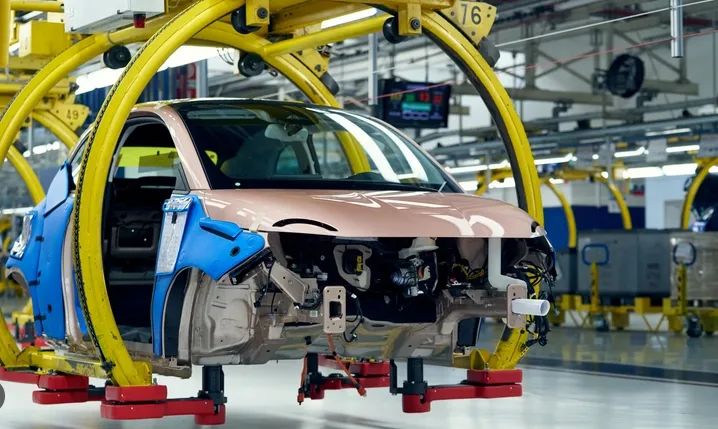
Sources told CNBC that Tavares also placed bureaucracy and budgets above brand CEOs, leading to a significant exodus of senior executives.
Regardless of who replaces Tavares, they will need to continue fostering relationships with suppliers, American hourly and salaried employees, dealers, and politicians.
Public documents show that from 2020 to the end of 2023, Stellantis reduced its total workforce by 14%, or about 40,600 employees, not including further layoffs in 2024.
Shawn Fain, president of the UAW, who had been calling for Tavares' dismissal for months, welcomed the CEO's departure, describing it as "an important step in the right direction for a poorly managed company where employees have long been unfairly treated."
American dealers were also frustrated but became more optimistic considering some changes before Tavares' departure.
Farish, head of the Stellantis American Dealer Council, praised the company's recent efforts to support dealers, especially the newly appointed North American COO Antonio Filosa.
Farish confirmed that Filosa and Stellantis Chairman Elkann attended a meeting with the Stellantis American Dealer Council on December 2.
"We have great confidence in Antonio, and we look forward to working with him... It's very optimistic to see so much action happening," Farish told CNBC.
Meanwhile, damage control around Tavares' departure was swiftly managed, especially in the United States and Italy.
Elkann also participated in a global tour of Stellantis factories in the United States, Italy, and France last week. Sources who attended leadership meetings at the company's vast North American headquarters in suburban Detroit last week said Elkann focused on closing out 2024 and was optimistic that 2025 would be a better year.
Sources at the American meetings said Elkann confirmed that Stellantis had ended an internal, surgical cost-cutting plan internally named "Darwin." Tavares had long proclaimed that the automotive industry was in a "Darwinian era" where only the strongest would survive.
"Darwin is dead because we need to survive," Elkann said.
(This article incorporates content from Automotive News, Le Monde, CNBC, Bloomberg, and Reuters, with some images sourced from the internet)

